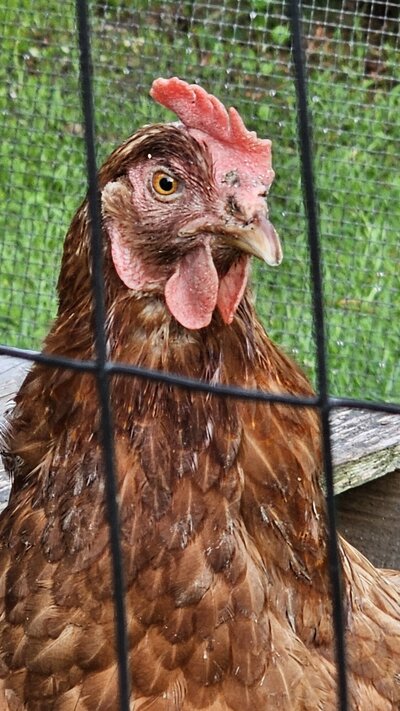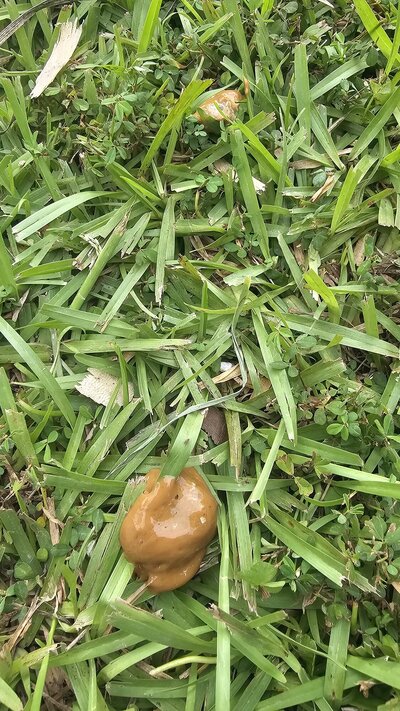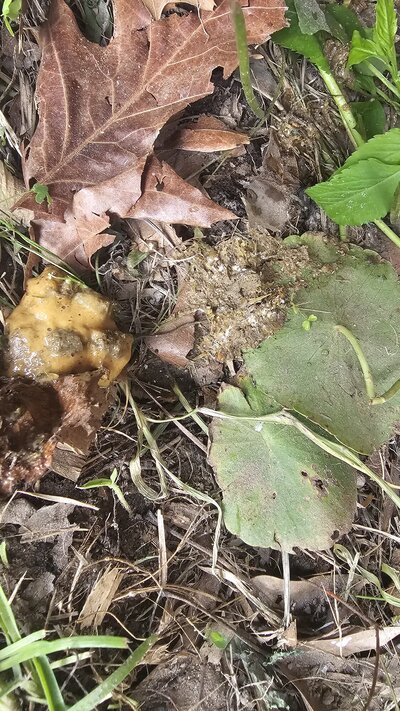Pittbull Chicken
Chirping
- Sep 16, 2023
- 33
- 244
- 79
I bought two chickens yesterday to increase the flock for my rooster. We had 8 hens and 8 rosters, but lost a few (eyp, egg bound, culling, and gave some away) including my prized broody (tumor) that kept the flock going. Anyways, I bought these two comets on good faith from the owner.
I didn't notice anything wrong with them till I put them in my car and they had drool dripping. I couldn't tell if it was from the mouth or nose. After setting them up in their quarantined area, I noticed a lot of water coming from one of the hen's mouth. To be safe, I put acv in their water and took the food away at night to make sure their crops emptied. I couldn't get a good feel from their crops this morning, however I haven't seen any drool or spilling of water from the mouth. It could've been from them chugging water as soon as I gave it to them.
The one thing that has been persistent, is what appears to be a runny nose. Their breaks are consistently caked with dirt from sticky nose runs and cleared only when they drink water. The skin around their face and eyes appears to be puffy as well. Their comb and waddles have been very pink/pale and dry. I haven't been able to look at their vents, but they do not have and droppings on their feathers. Their poop has been so watery, I couldn't take any pictures of it because it just soaked into the ground. However, they did start having solid in their stool after feeding them a healthy diet mixed with electrolytes and vitamins. Also, one has a limp and droopy wing. She recently started holding her wing more normal. Should I be treating for respiratory Illness or wait and see. Pictures of hens and stool to follow.













I didn't notice anything wrong with them till I put them in my car and they had drool dripping. I couldn't tell if it was from the mouth or nose. After setting them up in their quarantined area, I noticed a lot of water coming from one of the hen's mouth. To be safe, I put acv in their water and took the food away at night to make sure their crops emptied. I couldn't get a good feel from their crops this morning, however I haven't seen any drool or spilling of water from the mouth. It could've been from them chugging water as soon as I gave it to them.
The one thing that has been persistent, is what appears to be a runny nose. Their breaks are consistently caked with dirt from sticky nose runs and cleared only when they drink water. The skin around their face and eyes appears to be puffy as well. Their comb and waddles have been very pink/pale and dry. I haven't been able to look at their vents, but they do not have and droppings on their feathers. Their poop has been so watery, I couldn't take any pictures of it because it just soaked into the ground. However, they did start having solid in their stool after feeding them a healthy diet mixed with electrolytes and vitamins. Also, one has a limp and droopy wing. She recently started holding her wing more normal. Should I be treating for respiratory Illness or wait and see. Pictures of hens and stool to follow.









